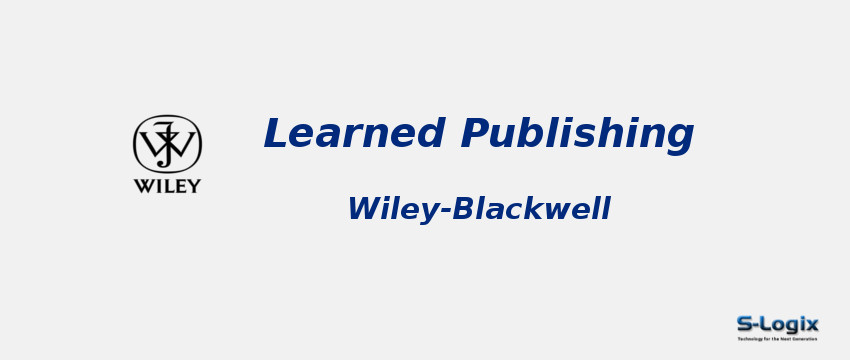Journal Home: Journal Homepage
Editor-in-Chief: Laura Dormer
Print ISSN: 0953-1513
Electronic ISSN: 1741-4857
Abstracting and Indexing: SCOPUS
Imapct Factor 2024: 2.4
Subject Area and Category: Social Sciences,Communication
Publication Frequency:
H Index: 47
Q1: Communication
Q2:
Q3:
Q4:
Cite Score: 5.2
SNIP: 1.395
Journal Rank(SJR): 0.765
Latest Articles: Latest Articles in Learned Publishing
Guidelines for Authors: Learned Publishing Author Guidelines
Paper Submissions: Paper Submissions in Learned Publishing
Publisher: Wiley-Blackwell
Country: United States
